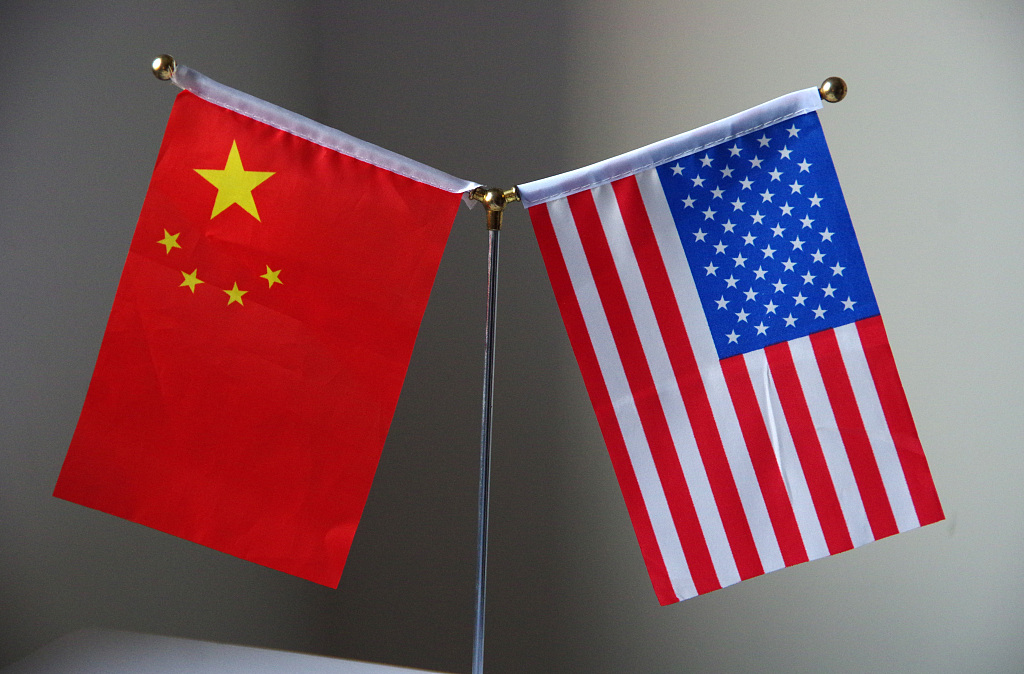
(File photo: VCG)
Business groups in the US and analysts around the world have voiced their opposition to the White House’s latest move to levy additional tariffs on Chinese goods, arguing it will essentially act as a tax on American businesses and consumers, escalating trade tensions and threatening the global economy.
China decided on Friday to impose an additional tariff of either 10 percent or five percent on 5,078 items from the US worth about $75 billion in response to the US announcement earlier this month to impose additional tariffs on Chinese imports.
China strongly urges the US not to misjudge the situation and immediately stop the wrongful action, said a spokesperson from China’s foreign ministry on Monday.
"It is an act solely intended to injure others, but it will only end up ruining themselves, and is not constructive at all," said spokesperson Geng Shuang.
US business groups warned that the latest round of trade friction will directly hit the US retail, vehicle and agriculture sectors.
“It’s impossible for businesses to plan for the future in this type of environment,” said David French, senior vice president of government affairs of the US National Retail Federation in a statement on August 23.
“The administration’s approach clearly isn’t working, and the answer isn’t more taxes on American businesses and consumers. Where does this end?” French said.
"Trump may be frustrated with China, but the answer isn't for US companies to ignore a market with 1.4 billion consumers," Myron Brilliant, executive vice president of the US Chamber of Commerce, said in a statement last Friday. "Escalating tensions is not good for market stability, investor confidence or American jobs."
Tariffs will hurt American companies, workers and consumers far more than China, said Katie Tangman, director of global customs and trade of Columbia Sportswear Company.
The sportswear company now manufactures in more than 20 countries but still gets about 20 percent of its imports from China.
Additional tariffs would disrupt the supply chain the company has built over the past decades and it would be very hard to find alternatives in a short period of time, leaving the company with only one choice -- passing the cost onto consumers.
As prices rise, demand will drop, and the company will have to close some stores and cut jobs, Tangman added.
Cars manufactured in the US — Tesla, Ford and many others — will be the hardest hit by trade tensions since additional tariffs will force them to raise prices and thus lose market share.
According to the US International Trade Administration, China is the second-largest export market for US-made automobiles, accounting for $6.2 billion in exports last year. In terms of parts, the country was the third-largest market, with 2018 exports worth $3.6 billion. In total, automakers exported roughly 230,100 US-built cars to China in 2018.
“China is not paying for it. Trump’s tariff hike hits everyone from beer brewers to book publishers,” CNBC reported, stating that this latest round of duties could impact everything from the craft beer you drink on the weekend to the musical instrument you play or the book your kid reads.
Small- and medium-sized businesses are scrambling to make plans — from delaying store openings to implementing hiring freezes, to even considering price increases, CNBC said.
The intensified trade dispute is also affecting confidence in the global economy.
Trump and his advisers want to help the US by using protectionist measures to gain new strength at the expense of others, especially export-strong countries such as Germany and China, said Josef Braml, US expert at the German Council on Foreign Relations (DGAP) in a commentary published on the website of Handelsblatt, a leading German-language business newspaper.
European Council President Donald Tusk said last Saturday that trade wars will lead to recession while trade deals will boost the economy.
The United States uses tariffs and taxation as a political instrument. This confrontation can be really risky for the whole world, including the EU, Tusk said.


